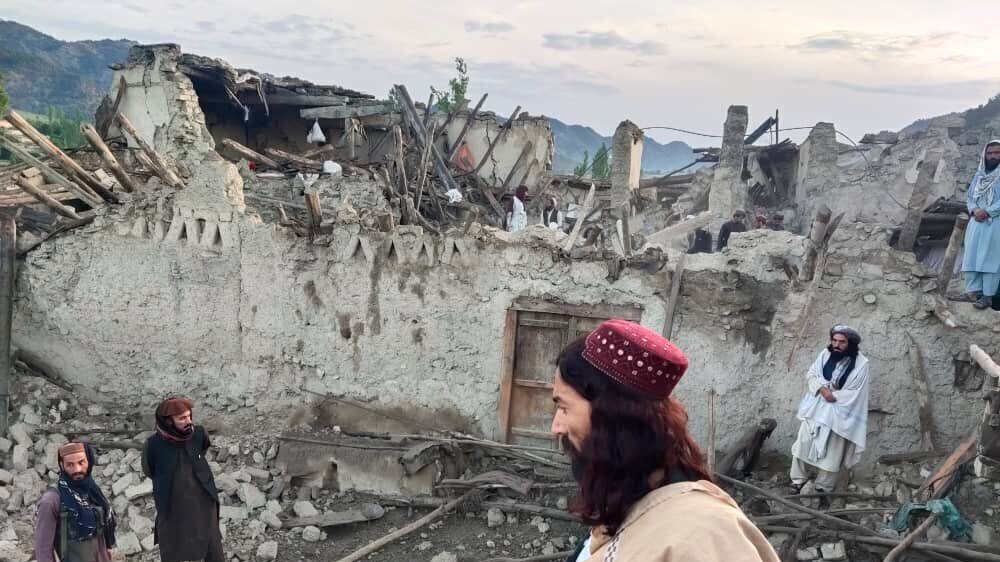A powerful 6.0-magnitude earthquake struck eastern Afghanistan late Sunday, causing widespread destruction across several provinces. With its epicenter near Jalalabad in Nangarhar province, the shallow quake—measuring just 8 to 10 kilometers deep—intensified the damage, toppling homes, triggering landslides, and leaving hundreds dead.
Casualties Mounting as Villages Crumble
The disaster has claimed more than 600 lives, with Kunar province reporting over 500 fatalities alone. Another 1,500 people have been injured, many critically. In Nangarhar, at least 9 were killed, and over 250 sustained injuries, mostly in the Darai Nur district. Nearby Laghman province has also reported around 80 injuries.
Rescue teams fear the death toll may rise as access to remote mountainous areas remains difficult and many people remain buried under rubble.
Mass Destruction in Remote Communities
Entire villages built from mud and stone were flattened. Makeshift homes offered no resistance against the quake’s powerful tremors. Landslides and damaged roads have cut off several areas, forcing rescue workers to rely on helicopters and limited ground access.
Local residents have joined rescue efforts, digging through debris by hand in hopes of finding survivors or recovering loved ones.
Aftershocks Spark Further Panic
The tremors were felt far beyond the epicenter—shaking buildings in Kabul, Islamabad, and even parts of northern India, including Delhi. Several aftershocks, ranging from magnitudes of 4.5 to 5.2, followed shortly after the main quake. These secondary shocks added to the chaos, hampering rescue operations and frightening already traumatized residents.
United Nations Sends Immediate Aid
The United Nations responded swiftly, sending emergency teams and aid to the affected regions. Relief supplies including food, water, and medical assistance have begun to reach the most critical areas, though logistical challenges remain due to the mountainous terrain and destroyed infrastructure.
UN officials expressed their condolences and reiterated their commitment to support Afghanistan through this unfolding humanitarian crisis.
India Offers Support and Solidarity
India’s External Affairs Minister, S. Jaishankar, expressed deep concern over the tragedy and conveyed India’s solidarity with the Afghan people. He assured that India stands ready to provide humanitarian assistance to those affected and offered prayers for the victims and their families.
India has a history of extending aid during natural disasters in neighboring countries and is expected to contribute significantly to relief operations.
A Nation in Crisis
The earthquake comes at a time when Afghanistan is already battling a complex humanitarian situation, with limited healthcare, ongoing displacement, and food insecurity. This disaster only deepens the challenges facing the Afghan people.
With the scale of the destruction still unfolding, international support will be vital in helping Afghanistan recover and rebuild. The days ahead will test the resilience of affected communities, as well as the capacity of the global community to respond swiftly and effectively.





More Stories
Despite Millions Spent, Delhi’s Cloud-Seeding Trial Yields No Rain
Raped, Silenced, and Pushed to the Edge: Young Doctor’s Final Note Names MP and Police Officials
Voter List Fraud: ₹80 Offered for Each Fake Deletion Request in Aland, Karnataka SIT Reveals